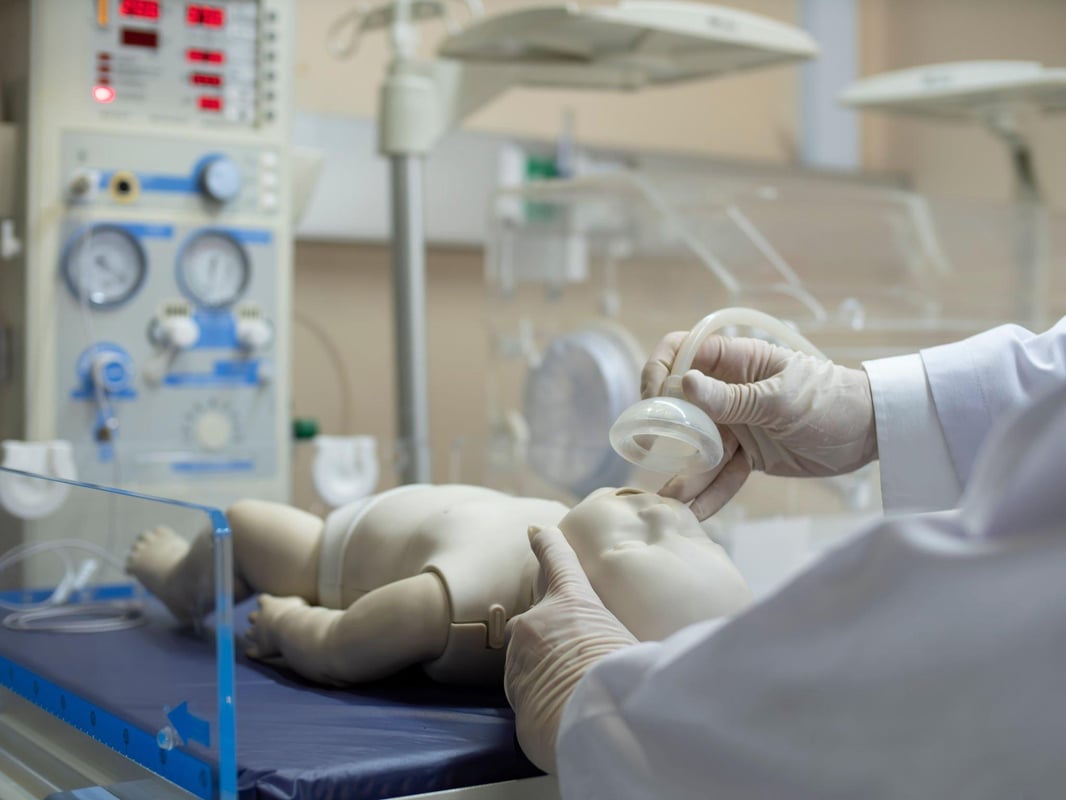
Financial aid (may be available)

Financial aid (may be available)

Financial aid (may be available)

Financial aid (may be available)
$225 total
$276 total
$2,075 total
$410 total
$365 total
$150 total
No cost info
$285 total
No cost info
$150 total
Getting proper training in pediatric advanced life support (PALS) is an essential step for anyone looking to build a career in the medical field. It's a crucial skill for healthcare professionals who work with children, such as pediatric nurses, doctors, and paramedics. In this blog post, we'll guide you on finding the best PALS classes in Philadelphia.

Pediatric Advanced Life Support (PALS) is a systematic approach to pediatric assessment that aims to reduce mortality and morbidity among children due to life-threatening conditions. PALS training provides healthcare professionals with the skills and knowledge they need to effectively respond to various pediatric emergencies. This training is critical for anyone working in a healthcare environment where they may have to respond to emergencies involving children and infants.
To enroll in a PALS class, you need to have a basic understanding of medical terminology and procedures. Most training providers will also require you to have Basic Life Support (BLS) certification, as PALS is an advanced course that builds on the fundamentals you learn in BLS training. Some of the topics covered in a PALS class include:
Recognition and treatment of infants and children at risk for cardiopulmonary arrest
Systematic approach to pediatric assessment
Effective respiratory management
Defibrillation and synchronized cardioversion
Intraosseous access and fluid bolus administration
Effective team dynamics
When looking for a PALS class, there are several factors to consider. The class should be accredited by a recognized health organization, such as the American Heart Association. It should also offer comprehensive training that covers all aspects of PALS, from recognition and treatment of life-threatening conditions to effective team dynamics.
In addition, you may want to consider the class size. Smaller classes often provide more personalized attention, which can enhance your learning experience. The instructor's experience and qualifications are also important, as well-trained instructors can provide valuable insights and practical tips.
PALS classes typically include a combination of lectures, hands-on skills sessions, and simulated clinical scenarios. You'll learn how to assess a child or infant's condition, provide effective cardiac life support, and use a defibrillator. You'll also learn about airway management and how to recognize and treat life-threatening conditions such as arrhythmias.
The PALS certification process typically involves completing a course and passing a written exam and a skills test. The course usually takes two days to complete. Upon successful completion, you'll receive a PALS provider card.
If you're looking for a job where PALS certification is required or preferred, consider positions such as a pediatric nurse, paramedic, or other healthcare roles that involve working with children. You may find relevant job listings on various online job boards. Additionally, some hospitals and healthcare facilities may have job postings on their websites.
After obtaining your PALS certification, you might consider taking further training to enhance your skills and career prospects. For example, you could consider becoming a certified medication aide, where you would be responsible for administering medication to patients under the direct supervision of a nurse. More information about this career path can be found here.
Alternatively, you may want to explore becoming a psychiatric technician, where you would provide therapeutic care to patients with mental illness or developmental disabilities. Learn more about becoming a psychiatric technician here.
Having a PALS certification not only equips you with the necessary skills to save lives, but it can also enhance your employability. Many healthcare employers require their staff to have PALS certification, especially those who work in emergency or pediatric departments.
PALS certification is not a one-time process. To maintain your certification, you need to undergo recertification every two years. This involves taking a refresher course and passing an exam.
While in-person classes offer hands-on experience, online classes can offer flexibility for those with tight schedules. Both have their pros and cons, and your choice would depend on your learning style and availability.
After becoming PALS certified, you may want to consider other relevant certifications to help advance your career. For example, becoming an EMT or a phlebotomist. More information about these career paths can be found here and here respectively.
Whether you're a healthcare professional looking to enhance your skills or someone considering a career in the medical field, PALS certification can be a valuable asset. With the right training, you'll be well-equipped to handle pediatric emergencies and make a significant impact on children's lives. So, start your search for the best PALS classes in Philadelphia today, and take the next step in your career.
Check out Dreambound's extensive guides focusing on the unique challenges and requirements for each city in the US. For more detailed information, see some of our other guides below.
Exploring diverse professional options? Dreambound has comprehensive guides to assist you in making well-informed decisions. Take a look at these resources:
Dreambound's platform allows prospective students to find the right educational program for them through searching, filtering, and connecting with our extensive selection of career & technical education partners.
Dreambound has over 70 programs across healthcare, technology, business, and industrial trades. This includes programs such as Medical Billing, Cybersecurity, and welding.
Some of our schools offer financial aid for those who qualify. Many others offer payment plans, where you can pay the cost of class over time.
Yes, Dreambound offers many online programs. On Dreambound's search, you can filter by online, in-person, and hybrid (part online, part in-person).
Dreambound is completely free for you to use! We are supported by schools and organizations who pay to advertise on our website, so we can offer all of our career resources for free.